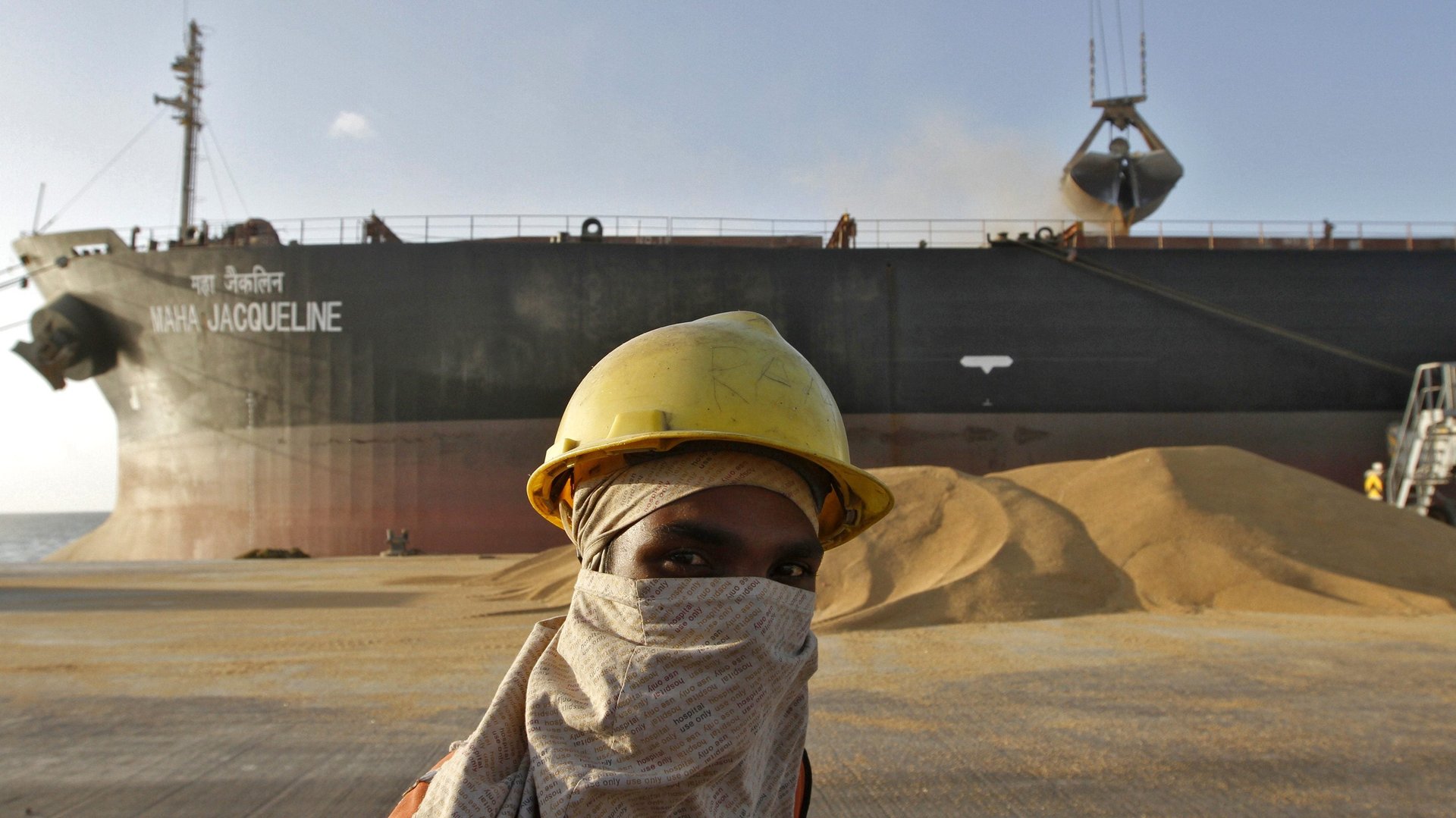The export bans driving up food prices around the world
In April, India’s minister of commerce and industry made a heroic announcement. The world was reeling from the sudden drop in wheat supplies when Russia and Ukraine, two of the world’s largest wheat exporters, curtailed their exports due to the war, but India would step in to fill the shortage.


In April, India’s minister of commerce and industry made a heroic announcement. The world was reeling from the sudden drop in wheat supplies when Russia and Ukraine, two of the world’s largest wheat exporters, curtailed their exports due to the war, but India would step in to fill the shortage.
“Indian farmers are feeding the world,” Piyush Goyal, the Indian minister said on Twitter. “Our farmers have ensured our granaries overflow & we are ready to serve the world.”
Less than a month later (May 13), India reversed its position, banning wheat exports after prices rose and a record-breaking heat wave damaged crops. India is the world’s second-largest producer of wheat, and the latest of more than a dozen countries to announce a food export ban since Russia invaded Ukraine in February 2022.
Importing countries are struggling to keep up with the export bans. Egypt, which imported 80% of its wheat from Russia and Ukraine, turned to India when those exports declined. That deal may still go through, but many countries will have to scramble for their next purchases as export bans spread.
According to the International Food Policy Research Institute (IFPRI), a Washington DC-based organization, export restrictions had affected 17% of the world’s food, as measured by the amount of calories traded, by early April. The number will substantially increase with India’s wheat export ban.
“As the war continues, there is a growing likelihood that food shortages, particularly of grains and vegetable oils, will become acute, leading more countries to turn to restrictions on trade,” the IFPRI noted in its April 13 report.
Wheat, cooking oil, meat prices surge
Wheat prices hit a record high in March 2022, within a week of Russia’s invasion of Ukraine. From mid-February to May 17, prices have increased 60%. Kazakhstan, Kyrgyzstan, Egypt, Serbia, Lebanon, among others, have also banned exports of wheat and other grains, according to IFPRI’s food export restrictions tracker.
Adding to the tight supply, China has been heavily buying wheat—some would say hoarding—over concerns of a poor harvest of its own.
Cooking oil prices that had already been rising steadily due to the pandemic, also rose sharply when the war forced Ukraine, the world’s largest exporter of sunflower seed oil, to stop shipments. That price spilled over into other oils. By April, Indonesia, which exports 30 million tons of edible oils, the most in the world, implemented a ban on some types of palm oil exports. Kazakhstan, Egypt, Kosovo and Turkey have also banned exports in edible oils.
Malaysia, the world’s second-largest palm oil producer, has moved in the opposite direction, proposing a reduction in export taxes by as much as half. The move is intended to help fill the shortage in global palm oil supplies.
Rising prices for wheat, sunflower meal (a byproduct of sunflower oil), soy, and corn, have also made feedstocks for chicken, pigs and cows more expensive, driving up poultry and meat prices. Argentina banned beef exports even before the war to control its spiraling inflation. Prices are soaring in India and Thailand, and in the UK, chicken prices are rising so fast, it’s on track to become as expensive as beef.
Meanwhile, fertilizer prices, also subject to export bans from China, Kyrgyzstan, Russia, and Ukraine, have increased 30% since the start of 2022, on top of an 80% increase in 2021, according to the World Bank. This will continue to drive up prices for food across the board.